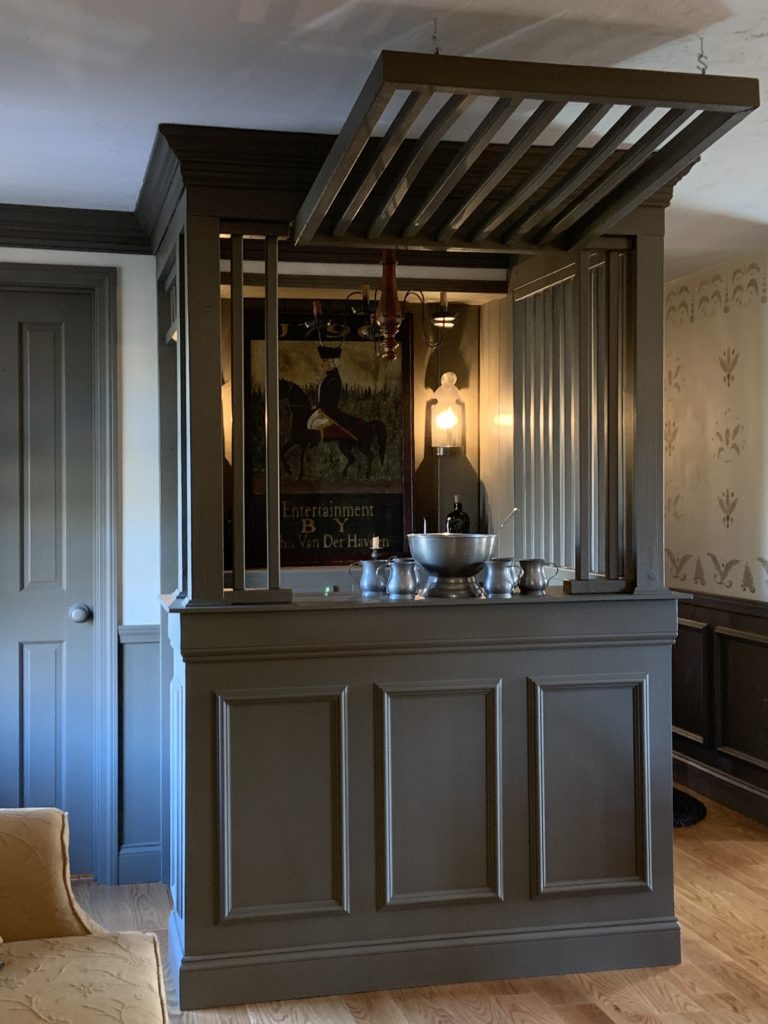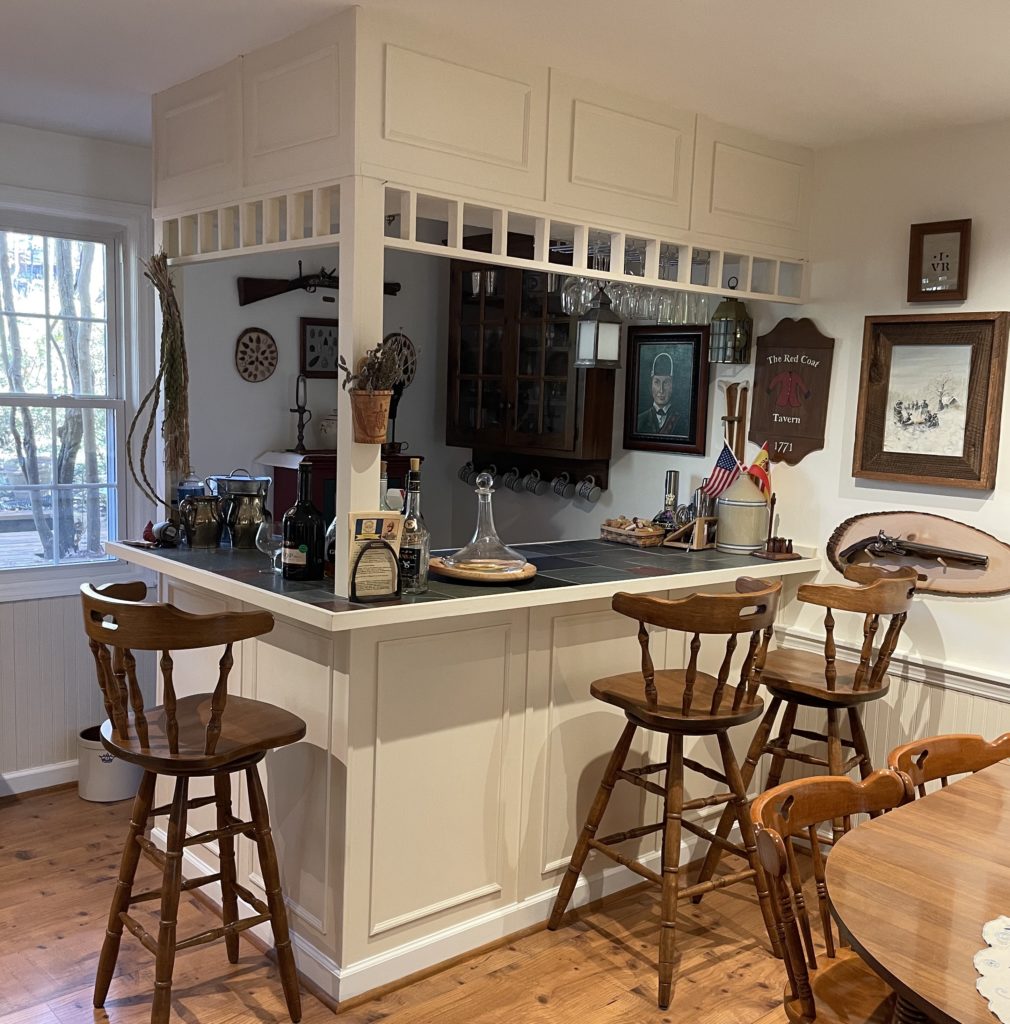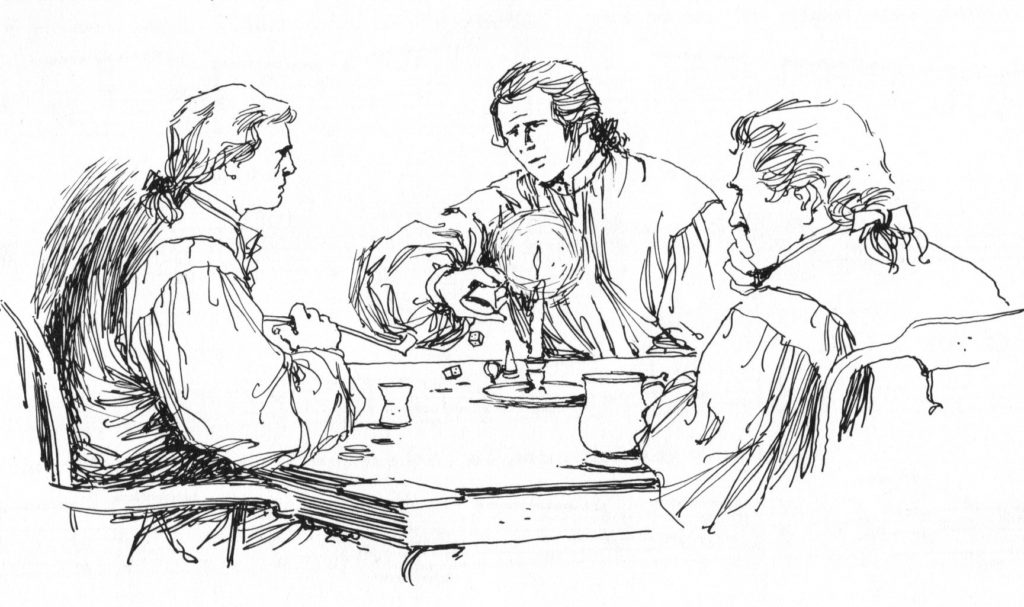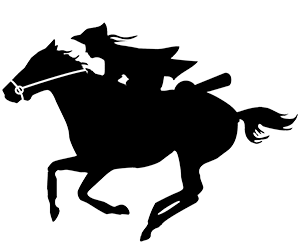𝑭𝒓𝒐𝒎 𝒈𝒐𝒐𝒅 𝒍𝒊𝒒𝒖𝒐𝒓 𝒏𝒆’𝒆𝒓 𝒔𝒉𝒓𝒊𝒏𝒌,
𝑰𝒏 𝒇𝒓𝒊𝒆𝒏𝒅𝒔𝒉𝒊𝒑 𝒘𝒆’𝒍𝒍 𝒅𝒓𝒊𝒏𝒌,
𝑨𝒏𝒅 𝒅𝒓𝒐𝒘𝒏 𝒂𝒍𝒍 𝒈𝒓𝒊𝒎 𝒄𝒂𝒓𝒆 𝒂𝒏𝒅 𝒑𝒂𝒍𝒆 𝒔𝒐𝒓𝒓𝒐𝒘:
𝑳𝒆𝒕 𝒖𝒔 𝒉𝒖𝒔𝒃𝒂𝒏𝒅 𝒕𝒐𝒅𝒂𝒚,
𝑭𝒐𝒓 𝒕𝒊𝒎𝒆 𝒇𝒍𝒊𝒆𝒔 𝒔𝒘𝒊𝒇𝒕 𝒂𝒘𝒂𝒚,
𝑨𝒏𝒅 𝒏𝒐 𝒐𝒏𝒆’𝒔 𝒂𝒔𝒔𝒖𝒓𝒆𝒅 𝒐𝒇 𝑻𝒐𝒎𝒐𝒓𝒓𝒐𝒘.
𝑶𝒇 𝒂𝒍𝒍 𝒕𝒉𝒆 𝒈𝒓𝒂𝒗𝒆 𝒔𝒂𝒈𝒆𝒔
𝑻𝒉𝒂𝒕 𝒈𝒓𝒂𝒄’𝒅 𝒕𝒉𝒆 𝒑𝒂𝒔𝒕 𝒂𝒈𝒆𝒔,
𝑫𝒂𝒅 𝑵𝒐𝒂𝒉 𝒕𝒉𝒆 𝒎𝒐𝒔𝒕 𝒅𝒊𝒅 𝒆𝒙𝒄𝒆𝒍:
𝑯𝒆 𝒇𝒊𝒓𝒔𝒕 𝒑𝒍𝒂𝒏𝒕𝒆𝒅 𝒕𝒉𝒆 𝒗𝒊𝒏𝒆,
𝑭𝒊𝒓𝒔𝒕 𝒕𝒂𝒔𝒕𝒆𝒅 𝒕𝒉𝒆 𝒘𝒊𝒏𝒆,
𝑨𝒏𝒅 𝒈𝒐𝒕 𝒏𝒐𝒃𝒍𝒚 𝒅𝒓𝒖𝒏𝒌, 𝒂𝒔 𝒕𝒉𝒆𝒚 𝒕𝒆𝒍𝒍.
𝑺𝒂𝒚, 𝒘𝒉𝒚 𝒔𝒉𝒐𝒖𝒍𝒅 𝒏𝒐𝒕 𝒘𝒆
𝑮𝒆𝒕 𝒂𝒔 𝒃𝒐𝒔𝒌𝒚1 𝒂𝒔 𝒉𝒆,
𝑺𝒊𝒏𝒄𝒆 𝒉𝒆𝒓𝒆’𝒔 𝒍𝒊𝒒𝒖𝒐𝒓 𝒂𝒔 𝒘𝒆𝒍𝒍 𝒘𝒊𝒍𝒍 𝒊𝒏𝒔𝒑𝒊𝒓𝒆?
𝑻𝒉𝒖𝒔 𝑰 𝒇𝒊𝒍𝒍 𝒖𝒑 𝒎𝒚 𝒈𝒍𝒂𝒔𝒔,
𝑰’𝒍𝒍 𝒔𝒆𝒆 𝒕𝒉𝒂𝒕 𝒊𝒕 𝒑𝒂𝒔𝒔,
𝑻𝒐 𝒕𝒉𝒆 𝑴𝒂𝒏𝒆𝒔2 𝒐𝒇 𝒕𝒉𝒂𝒕 𝒈𝒐𝒐𝒅 𝒐𝒍𝒅 𝒔𝒊𝒓𝒆

In the good old colony days, when we lived under the King, one often wonders what did our ancestors do for an evening’s entertainment? I know Sally and I sure did. There were no TVs, radios, and theatres were few and far between and generally located only in the largest of communities. Of course, there were pubs, which were the centers of a communities’ entertainment. So, what sort of entertainment did they provide?
Pubs? Now, when and why did they start calling them “pubs,” or even “bars.” Sally and I mentioned in an earlier post that our colonial forefathers were familiar with the terms, “tavern,” “Inn,” and “Ordinary,” which at first had fairly specific meanings based on the availability of lodging, food, and spirits, but over time, those terms became interchangeable.
Pub, on the other hand, stems from the term “Public House,” which from Roman times meant a place that was licensed to serve alcoholic beverages. For some reason, the proprietor of a public house became known as a “Publican,” which is a slight bastardization of terminology, since a Roman “publican” was a collector of taxes.
Okay, so now we know the origin of the term “Pub,” but why in blazes do they call it a “Bar?” Well, that comes from the old practice of placing an inn’s supply of spirits behind a barred cage that could be opened when the bar-tender was present. Over time, better methods of securing the liquor supply were developed, such as locked cabinets and storerooms, which made the cage bar no longer necessary. As a result, the cage was reduced in size and became more decorative trim than functional. The accompanying photos show a fully functioning cage-bar in comparison with the later version decorative cage bar, which is in Sally’s and my home in Virginia.


Well, that got us to the tavern’s liquor supply, but How did our colonial ancestors enjoy it? Did they simply sit around a table and drink or did they have a way of enlivening the evening?
In the more well-attended public houses in larger towns, there was the 18th century version of today’s “happy hour.” Hmm, “Happy Hour?” Now how did that term originate? Actually, it was first mentioned during western Europe’s “Belle Époque’ (the beautiful era), 1871-1914. That was when Absinthe, also maligned as “green fairy” was imbibed by “creatives” such as artists, poets and writers for its legendary hallucinogenic properties. Absinthe was the creation of a French doctor in Covet, Switzerland who claimed it was a cure-all for anything from flatulence to anemia. Oscar Wilde once said that “After the first glass of absinthe, you see things as you wish they were. After the second, you see them as they are not. Finally, you see things as they really are, and that is the most horrible thing in the world.” During Europe’s late 18th century, The green-colored Absinthe bottles could be found in most public houses in Europe, particularly those catering to artists and intellectuals. It was in France during the later 19th century that 5:00 pm became known as “l’heure verte” or “the green hour,” which would later morph into “happy hour.”
In colonial America, Absinthe was fairly rare until the early 19th century. The pirate Jean Lafite frequently imbibed in Absinthe in the Absinthe Bar on Bourbon Street in the French Quarter of New Orleans. The bar is still there, across the street from the Royal Sonesta Hotel. Don’t miss it! I once had the most interesting conversation with an old French Foreign Legionnaire in the Absinthe Bar; at least I think I did, as we were sipping Absinthe.

In popular colonial American inns and taverns, the evenings entertainment was sometimes referred to as “Gambols,” which meant “frolics,” not gambling or wagering as some assume. However, in some public houses, gambols might indeed include some form of gambling and wagering, such as spirited games of whist, devil among the tailors, or nine men’s morris. Beside games such as those mentioned, patrons might also be entertained by poets, minstrels and balladeers. All in all, gambols provided an evening’s popular and lively entertainment, which encouraged patrons to return for more the following evening. Gambols can still be experienced at Chownings Tavern in Colonial Williamsburg, Virginia. Another item for your “bucket list.”
Well, did they also have gambols in the little inns and taverns in rural communities? Some did, but on a lesser scale. Walking into the tavern room of a rural inn, one might find, local regulars engaged in lively conversation while competing in games of whist, piquet, cribbage, loo, put, and all-fours. But, generally, it was mostly the conviviality of local regulars getting together after a long workday, that resulted in what was referred to as “Jollification.” Unlike the more cosmopolitan public*- houses with their more structured gambols, jollification was merely friends getting together for a pleasant, relaxing drink.
So, in the ancient spirit of jollification, let’s lift a congenial glass to each other.
